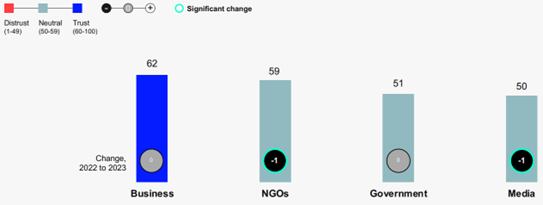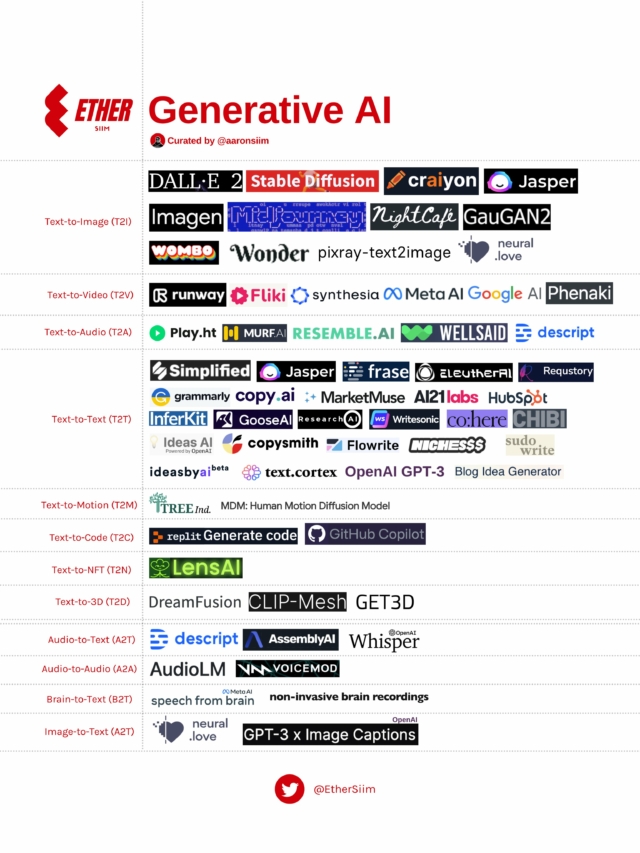Throughout my ‘Brands in the Boardroom’ series, I have advocated that more attention should be paid to the financial and operational aspects of brand management within the higher layers of organisations. However, there’s a new kid on the block that’s buzzing in the boardroom, and it’s called AI, and more specifically for brand leaders and communicators, ChatGPT.
Note: This is not a ChatGPT-generated article. Views expressed are my own.

“… there has never been a moment where I have been so impressed by the potential of technology … to make things better for all the world’s people, but that will only happen with the right type of political and financial foundation.”
Lawrence H. Summers, President Emeritus, Harvard Kennedy School of Government at World Economic Forum, 2023
In January, I attended the World Economic Forum 2023 in Davos. As the week progressed, it became clear that business- and world leaders were not just talking about geopolitics, the climate crisis, energy challenges, and war but also about the influence of AI.
ChatGPT also has Google spooked. The New York Times reported that Google founders Larry Page and Sergey Brin held several emergency meetings with company executives about OpenAI’s new chatbot, which could threaten Google’s $149 billion per annum search business. And on 6 February, CEO Sundar Pichai . Microsoft has earlier announced a $10 billion investment in ChatGPT’s developer, OpenAI. So clearly, something serious is up.
With all the attention on the rise of AI, I have been pondering what this will mean for the role of brand, and below I’ve jotted down my thoughts:
1. These days, trust in institutions, in general, has been in decline. The greater trust in ‘businesses’ suggests that a personal/human relationship is greatly valued in these times of uncertainty and mistrust. According to Edelman’s latest Trust Barometer, businesses are the institution most viewed as both competent and ethical. How will we be able to maintain and build trust if we can no longer distinguish (opinionated) AI-generated content from real human content?

Figure 1: Business Only Trusted Institution (from 2023 Edelman Trust Barometer)
2. ‘ChatGPT’ is already becoming the acronym used to describe a whole array of generative AI solutions that are coming to the market, with ChatGPT from OpenAI generating by far the most publicity. In terms of recognition and market dominance, as far as app vendors for AI, they have already become what Coca-Cola is to the cola market.
See the figure below for an overview of the market landscape:
3. If we don’t know what information to trust anymore due to automation and don’t know who is really sending the information, I suspect that – in time – people will become savvier and will no longer consider information to be credible when forming our opinions. This will have major implications for the relevance of certain channels of information, like social media and public web content. These might still play a role for factual automated information (for example, events, weather, financial market info or info on dynamic travel schedules), but no longer for individuals to base their opinions on. If you compare this to what I wrote about trust in businesses, direct (internal) communication channels within organisations will only become more important for people.
"I suspect that – in time – people will become savvier and will no longer consider information to be credible when forming our opinions."
4. As for brand leaders and communicators, they are responsible for orchestrating the relationship between an organisation and its various external and internal stakeholder groups.
Last week, Buzzfeed announced that going forward, content would be generated by ChatGPT, which resulted in a 200% share price increase for Buzzfeed. With a flood of automated content being generated, how can companies still be distinctive in communicating what they stand for, how they behave and what their values are?
The decreasing trust in such media outlets and the sheer flood of (automated) content will make people reluctant to keep consuming this information. We are already seeing a shift towards the consumption of more video content as an alternative to written text. What happens when ‘ChatGPT’ for video content has emerged – and deep fakes become the norm? I can also imagine that people will become even more sceptical, trusting only opinions from people in their immediate environment, both in private life – family and friends, and in business life – their colleagues, suppliers, and customers.
Free guide
The Ultimate Brand and Marketing Technology Guide
Find out more about the six steps to set up a successful brand technology ecosystem — from business case and vendor selection to implementation and management.
5. How will the traditional spread across paid, earned, and owned media channels shift due to the ‘ChatGPT-isation’ of content? As I expect people to increasingly shy away from and lose trust in automated content, I also expect the effect of performance marketing to decrease dramatically. Equally, any communication or experience where real human interaction clearly comes through will be more valued and appreciated by people. Many brands are becoming better and more ‘human’ in how they automate content. A lot of them are already crazy good at it.
In an earlier article, I wrote about another trend that will amplify this effect: the impending death of third-party cookies will make long-term brand-building more important than ever. Those of us with performance marketing responsibility have become cookie addicts. We have been using cookies to track website visitors, improve user experience, and collect data that helps target ads to the right audience and increase conversion. We also use them to learn about what our visitors are checking out online when they’re not on our websites. Safari and Firefox have been blocking third-party cookies since 2013. Google is also stepping away from this form of data tracking on Chrome.
For marketers and brand leaders, the combined effect of the impending death of third-party cookies and the ‘ChatGPT-isation’ of content implies that long-term brand-building – to help create empathy across stakeholder groups – has become significantly more relevant.
"Any communication or experience where real human interaction clearly comes through will be more valued and appreciated by people."
6. Companies and, in particular, brand leaders should also look to the professional and governing bodies responsible for advising corporations on the responsible use of these technologies. The Data and Trust Alliance, for example, is a not-for-profit consortium established to bring together leading organisations to “learn, develop, and adopt responsible data and AI practices.”
"With trust in businesses relatively high, there's a clear opportunity to drive purpose, brand, identity, experiences, and behaviour from the inside out. After all, no AI is as authentic as an organisation’s people."
All in all, the jury is out on the impact of ChatGPT on brands and communications, though I believe it is an opportunity and highlights the need to increase focus on top-of-the-funnel brand-building activities versus lower-funnel sales activation activities. Much of traditional day-to-day work can be taken over by AI, which can be a good thing.
On the flip side, an organisation’s ability to demonstrate purpose and bring that out consistently across the brand experience and all its touchpoints has never been more crucial. So whilst I am sure that sales activation and performance marketing activities will continue to become more automated, organisations should not ignore the human authenticity that is ultimately the key to building their brand.
With trust in businesses relatively high, there’s a clear opportunity to drive purpose, brand, identity, experiences, and behaviour from the inside out. After all, no AI is as authentic as an organisation’s people – well, not yet, anyway.
–
A version of this article has appeared on the Page Turner blog.
